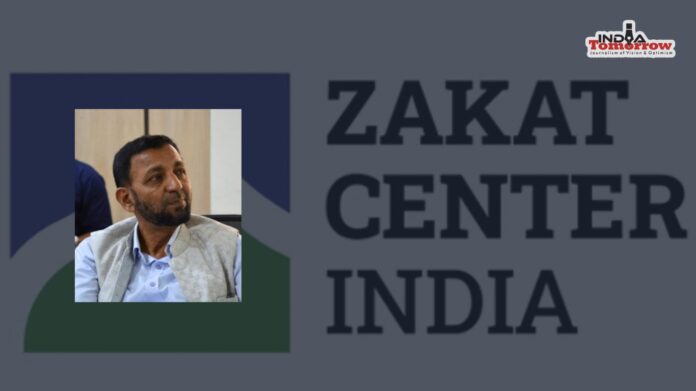NEW DELHI :

NEW DELHI—Zakat Centre India (ZCI) secretary Abdul Jabbar Siddiqui has highlighted the need to use Zakat collections for skill development and livelihood generation programmes for Muslims who are at the bottom of the labour force participation rate (LFPR) and worker population ratio (WPR) among various social and religious groups in India.
An analysis of the Periodic Labour Force Survey (PLFS) data for the period July 2022 to June 2023 says that WPR for Muslims for the survey period was 31.7 percent against national average of 42 percent. According to the PLFS data, WPR for Muslims fell from 35.5 in 2020-21 to 31.7 per cent in 2022-23. LFPR and WPR measures employment status among social and religious groups.
Based on these data, Mr Siddiqui says that only a little over 30 percent of Muslims in the age group above 15 per cent are employed getting regular salary and the whopping 70 percent of the Muslim population have no work at all. According to Mr. Siddiqui, this is one of the basic reasons for mass poverty among Muslims in India.
Mr. Siddiqui is not wrong. His observations are supported by Santosh Mehrotra, a professor of Economics in the Jawaharlal Nehru University (JNU). He says that among major religious groups, the labour force participation rate (LFPR) and WPR of only Muslims have declined. (LFPR is the share of population which is looking for work, and WPR is the share of the working age population that has work).
But Mehrotra has made a mistake in his analysis. Based on declining WPR, Mehrotra has concluded that “Muslims are not looking for work” which is not true. Nobody wants to live in poverty. Everybody has an innate desire to increase his/her income.
But there are certain obstacles that come in the way of Muslims getting absorbed in the job market.
In a video he circulated on the social media to create awareness among the educated members of the community, Mr Siddiqui, who is also associated with the Jamaat-e-Islami Hind (JIH), one of the prominent Muslim organisations in India, says that it is not that Muslims are not willing to work or not looking for work.
According to him, Muslims are willing to work but they don’t possess requisite skills and capital and also the knowledge required to get absorbed in the job market.
But even if one has knowledge and skill, one requires working capital for starting one’s own business and trade. According to Mr. Siddiqui, it is here that Zakat can play a vital role in providing capital to poor Muslims to set up their own businesses and become financially independent.
According to Mr. Siddiqui, Zakat money can be utilized in development of skill and generating livelihood activities for the poor Muslims. He said that if Zakat money is utilized properly, for example, to provide work to at least 80 percent of the Muslim population having no regular sources of income, the community can play a positive role in boosting national economy and bring happiness to the community, besides contributing to the gross domestic product (GDP) of the country.
Zakat Center India, according to Mr. Siddiqui, has been set up to make poverty-free Muslim community.
ZCI that began operations throughout the country in 2022 has so far impacted the lives of 6,000 people. Of the total money it spent since then, it spent 69.4 per cent on livelihood projects, making 1,058 persons financially self-reliant. The rest of the money was spent on developing skills and providing education, and ration to poor people.
Donations to ZCI can be made in its bank account: Zakat Center India, HDFC Bank, Account Number: 50200067009755, IFSC Code: HDFC0000365, Account Type: Current Account, Branch: Mehdipatnam Hyderabad.
You can also pay your Zakat online easily by using UPI / Credit / Debit card / Net-Banking by clicking at https://zakatcenterindia.org/bank-details/ and also through https://zakatcenterindia.org/pay/
source: http://www.indiatomorrow.net / India Tomorrow / Home> Economy> National Interview / Syed Khalique Ahmed / by admin indiatomorrow / March 28th, 2024








